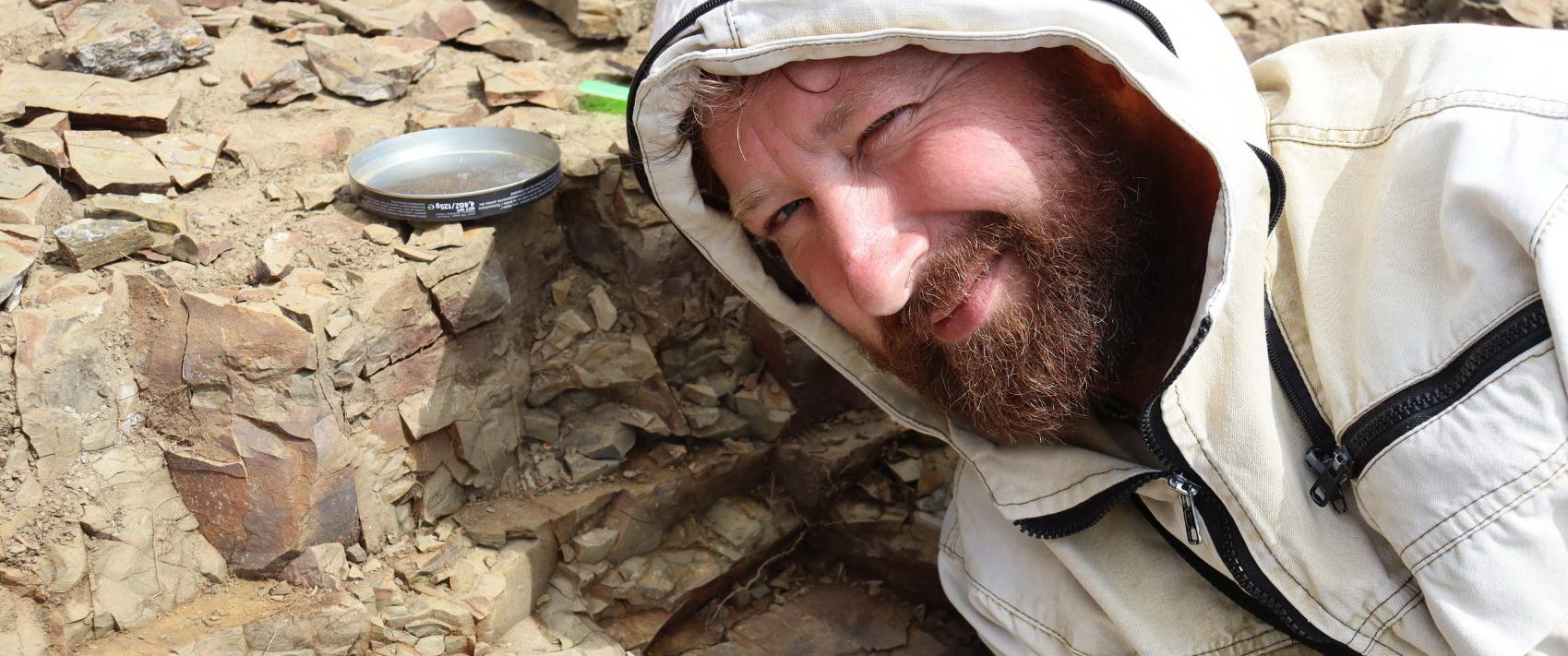The remains of 25 specimens of Jurassic fish were discovered during an expedition in the Irkutsk coal basin by Stepan Ivantsov, associate professor of the Department of Paleontology and Historical Geology of the Faculty of Geology and Geography of TSU, together with his Irkutsk colleague, paleobotanist Andrey Frolov, and students of the TSU FGG. These new paleontological findings lead scientists to expect more findings of higher vertebrates, including dinosaurs, in the Irkutsk Oblast.
The Irkutsk coal basin is a continental depression filled with Jurassic deposits, which suggests the possibility of finding traces of dinosaur fauna there, says Stepan Ivantsov. In 2014, the scientist set out in search of Jurassic vertebrates for the first time with a member of the Institute of the Earth's Crust of the Siberian Branch of the Russian Academy of Sciences, Andrey Frolov. In 2017, they invented an approach that helped them discover first remains of two Jurrasic-aged fish during the final days of the 2020 expedition, on a new site.
"This year we went there purposefully, already knowing where this layer is located. In three weeks of work, we examined about 5 square meters of land, and we found 25 fish of different species – this is quite a lot. They reach about 20-25 cm in length, but we can't identify the species yet – first we need to dissect the samples," Stepan Ivantsov comments. "The second thing we can say for sure is that they agglomerated there due to some event that led to their mass death. Along the way, we took samples for various geochemical and micropaleontological analyses – this will help us find out the cause of their death. And the most important assumption confirmed by our findings is that there are Jurassic vertebrates in the Irkutsk basin, and I will continue looking for them."

Deposits of Jurassic age in the Irkutsk basin turned out to be cemented, plated: first, they had to be split, and only then was it possible to examine the stratification planes, the Tomsk scientist recalls. On one hand, this brought certain difficulties, on the other, it provided unprecedented preservation. The state of the fish was almost identical to that of living ones: imprints of soft tissues, scales, and even all the fin-rays are visible.
The camp of the Jurassic researchers was in a wooded area in the Angara River valley, 50 km north of Irkutsk. There was a road and a well with artesian water nearby, but what separated them from the work site were 8 km of rough terrain; every day the group had to spend more than an hour and a half in a one-way trip to the site. For students of FGG Artyom Dudin (3rd year of study) and Egor Ignatov (4th year of study), the expedition became their first experience in organizing field work and searching for paleontological remains.
"The conditions were somewhat rough: we came without a generator, with a limited amount of food, and with only a backup push-button phone for emergencies. But we had books with us and we read a lot," says Stepan Ivantsov. "My colleague Andrey Olegovich was also lucky in this expedition: he found several species of Jurassic plants in the Irkutsk basin, including a new species of liver moss and the remains of spore-bearing plant organs. I consider the Irkutsk Oblast to be a promising site, and I focus my research papers and doctoral dissertation on Eastern Siberia in general.”